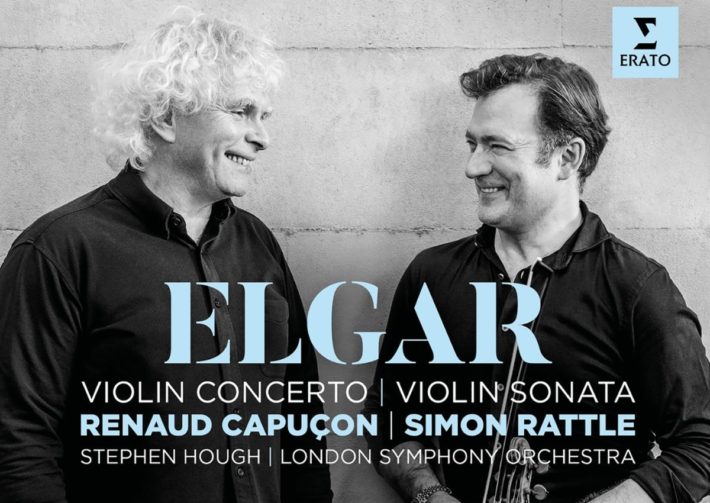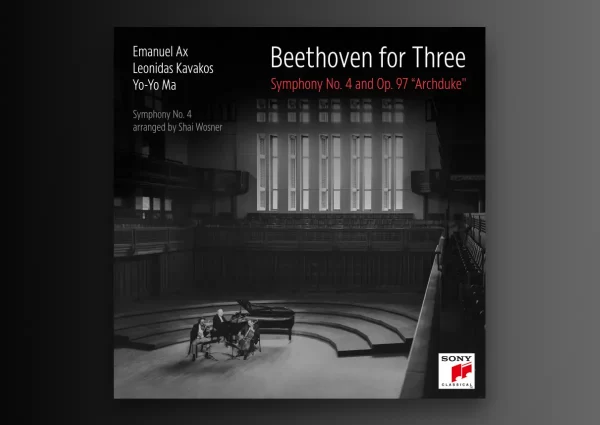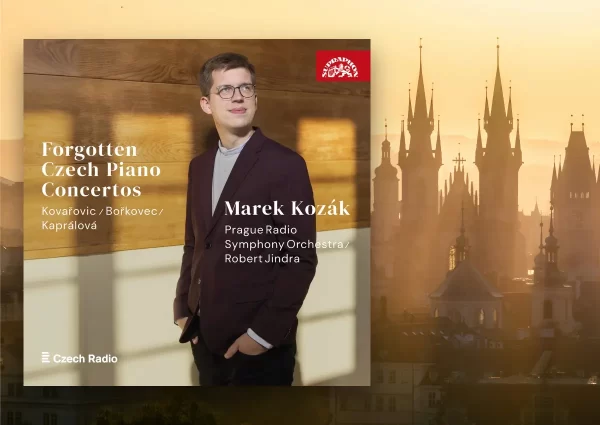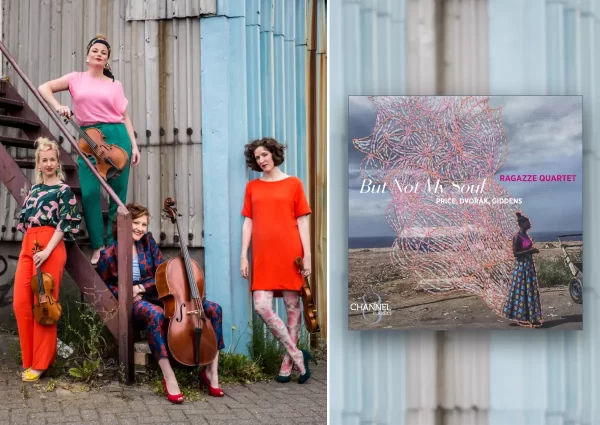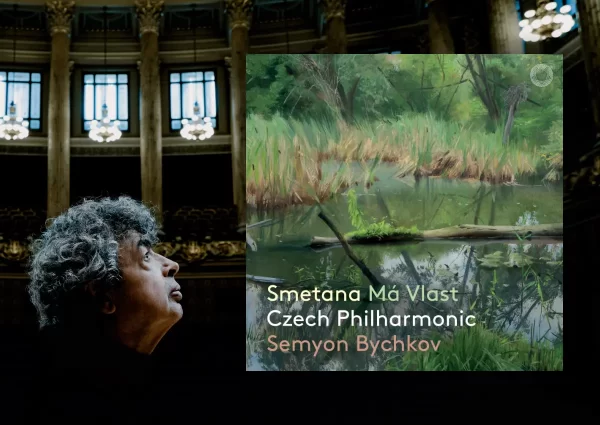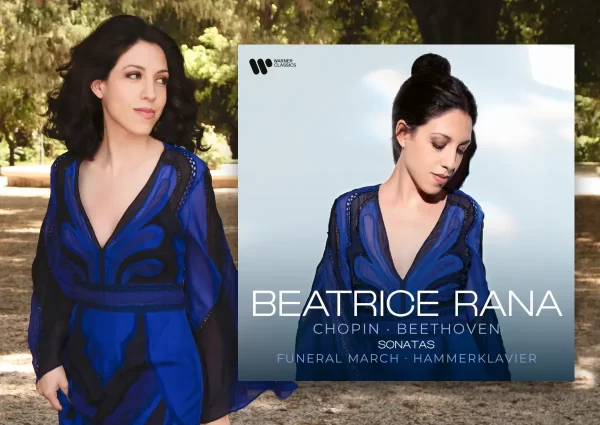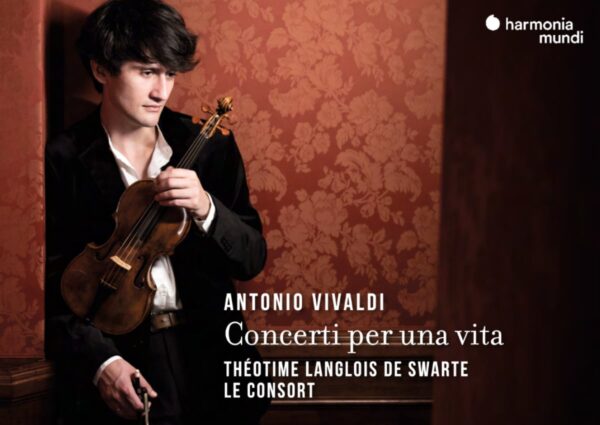Elgar’s Violin Concerto, one of the longest and most challenging in the violin repertoire, is a choice that hits close to home for the London Symphony Orchestra. Not only was it premiered by Fritz Kreisler and the LSO back in 1910, but Elgar himself became LSO’s principal conductor in 1911. To this listener’s recollection, this is the first collaboration on record between violinist Renaud Capuçon and conductor Simon Rattle.
The orchestra’s effusive approach to the orchestral introduction immediately sweeps us up into its drama. Right off the bat is a seamless blending of the different instruments. The low strings and timpani provide depth and a bounding push forward but never overpower; the brass makes its presence known but doesn’t blare. The violins, meanwhile, do their part to maintain Elgar’s singing lines. The soloist’s arrival at 3’08” is more subdued but not any less profound. In many delicate shades of dynamics and expression, we can hear how Capuçon lets the instrument speak. What I liked about his interpretation is how he takes his time: Elgar has a lot to offer in terms of emotional nuances and complex phrases, and this unhurried perspective lets us appreciate them.
The Allegro molto (track 3) is as rhapsodic as it is virtuosic. Capuçon has an impressive command of the technical elements; the double stops and runs are effortless in their precision and clarity. More importantly, though, is that he has quite the musical versatility. Moods change very quickly here but at every turn, he seems fully immersed. The orchestra presents an equally skilled effort by observing the smallest details in parallel phrasings and articulation to create a conversation with the violin. To this end, Rattle also pivots the ensemble seamlessly back and forth from an accompanimental force to a soloistic one.
Related Classical Music Reviews
- Review: Elgar – Violin Concerto – Nicola Benedetti
- Review: Elgar – Cello Concerto – Sheku Kanneh-Mason, Rattle
- Review: Saint-Saëns – Chamber Works – Chamayou, Capuçon, Moreau
One highlight of the Allegro molto is the first “cadenza” that appears about 10 minutes in. In a slightly unconventional approach, the orchestra never actually leaves. It instead hovers with a whispering tremolo as the violin revisits themes from earlier movements. Though the two forces represent diametrically opposed emotions, the artistic collaboration is masterful. The orchestra’s suspense somehow ends up complementing, even enriching, Capuçon’s reminiscence.
Almost a decade passed before the arrival of the Op. 82 Violin Sonata (1918). Its 1919 premier was not met with as much success as the Concerto, but the Sonata has its own introspective charm. The interpretation by Capuçon and Stephen Hough shows how well-matched they are in their artistry. The standout movement in this regard is the Romance (track 5). The opening does not immediately envelop the listener in melodious lyricism like the Concerto’s Andante does. Instead, the tonally ambiguous opening seems to pose a question to the listener: “where does our journey lead?” Capuçon brings this question to life by creating deft color changes as the line descends, conveying pensiveness and a hint of darkness. The unexpected playfulness that follows at 0’17”, thanks to some graceful pizzicatos and crisp two-note phrases, introduces into the fold an unexpected textural path that further heightens our curiosity. If we keep going, though, we realize that the journey to the satisfying and impassioned high point is worth it. The performers make the most of the moment – Hough especially shines as he channels the instrument’s powerful sonorities that lend to the section its sweeping Romanticism.
The sound engineering on this album is excellent. The orchestra’s richness matches that of the soloist’s in the Concerto, but not to the point where the relationship becomes lopsided). In the Sonata, the sensitivities of both instruments are brought out very nicely. As for the liner notes, they take us through important parts in each movement of the Concerto; I did find the Sonata’s notes a bit scant, though.
This album brings out in earnest what Capuçon himself mentions as the nobility, tenderness, and poetry of Elgar’s writing. A fine effort and one I recommend without reservation.

Elgar – Violin Concerto, Violin Sonata
Renaud Capuçon – Violin
Stephen Hough – Piano
London Symphony Orchestra
Simon Rattle – Conductor
Warner Classics / Erato, CD 9029511282
Recommended Comparisons
Read more classical music reviews or visit The Classic Review Amazon store
Follow Us and Comment:
Get our periodic classical music newsletter with our recent reviews, news and beginners guides.
We respect your privacy.

